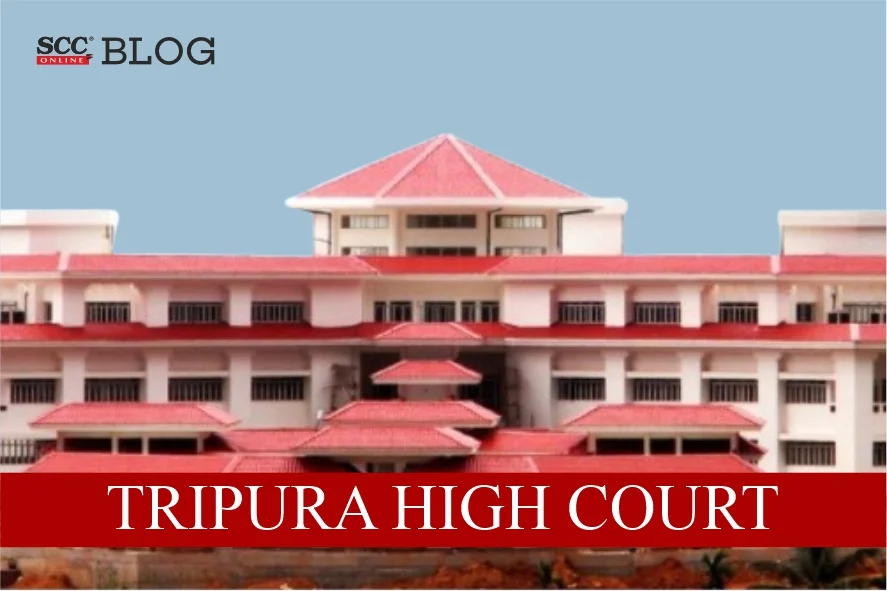Tripura High Court: S.D. Purkayastha, J.*, opined that when in any establishment the provisions of the Payment of Gratuity Act, 1972 (‘the Act’) were applicable, automatically, the calculation should be made as per the limits prescribed by the Central Government from time to time. The Court thus directed respondents to make payment of gratuity to petitioner in accordance with provisions of the Act treating the maximum ceiling limit of the gratuity to be Rs 20 lakh as notified by the Central Government vide notification dated 29-03-2018.
Background
Petitioner was an employee of a society namely Tripura Tribal Welfare Residential Educational Institution (‘the Society’) run under the administrative control of Tribal Welfare Department, Government of Tripura. The main object of the said society was to establish, maintain, control, and run the Eklavya Model Residential School (‘EMR School’), Residential School and Ashram School in the tribal sub-plan area of the state. Petitioner retired on 31-10-2022 from the post of Principal and as a matter of gratuity Rs 3.50 lakh were paid to him. Thereafter, dispute arose between the parties regarding quantum of actual amount of gratuity payable to petitioner.
Petitioner in view of the notification issued by the Central Government making the maximum ceiling limit of gratuity to the extent of Rs 20 Lakh issued vide dated 29-03-2018 by virtue of the provisions of Section 4(3) of the Act, had claimed that his gratuity should be paid in terms of the said notification.
Senior Counsel for petitioner after referring to the minutes of sixth meeting of Board of Directors of the Society held on 05-09-2009, submitted that a decision was taken by the Board that the benefit of gratuity as per the Act to the staff under the society would be provided with immediate effect and for implementation of the said decision, Group Gratuity Scheme was decided to be purchased involving an amount of Rs 5,74,016 for the liability up to the financial year of 2008-2009 which was also approved by the Board of Directors/Governors. Further, the decision in this regard was taken that the amount required for the Group Gratuity Scheme in future should be deposited with the approval of the Board of Directors. Thus, it was submitted that when the Society had made the payment under the Act, applicable to the employees of the society, automatically as per the provision of Section 4(3) of the Act, the employees were entitled to the gratuity as per the enhanced ceiling limit as determined by the Central Government from time to time. As such, because the date of retirement of petitioner was 31-10-2022, his case would be governed by the ceiling limit of Rs 20 lakh.
Analysis, Law, and Decision
The Court opined that Section 14 of the Act gave an overriding effect upon all other enactments or rules made thereunder other than this Act or any instrument or contract having effect by virtue of any enactment other than the Act. Further, the Court noted that the sixth meeting of the Board of Governors had categorically decided to introduce the said Act in their establishment. Section 4(3) of the Act envisaged that the amount of gratuity payable to an employee should not exceed such an amount as might be notified by the Central Government from time to time.
The Court relied on Bhupati Debnath v. State of Tripura, 2020 SCC OnLine Tri 84, wherein a co-equal bench of this Court had exhaustively dealt with the matter that “whether any institution where the Payment of Gratuity Act, 1972 applied, could be allowed to make any payment of gratuity to its employee going below the limit as was prescribed by the Central Government from time to time by virtue of Section 4(3) of the Act”. The Court opined that when in any establishment the Act’s provisions were applicable, automatically, the calculation should be made as per the limits prescribed by the Central Government from time to time.
The Court opined that Section 4(5) of the Act was indicative of the fact that the Act being a beneficial legislation, the entitlement of an employee could not be reduced below the prescribed ceiling limit under Section 4(3) of the Act, under any award, agreement, or contract, rather this provision approved receiving of a better gratuity than what was notified by the Central Government.
The Court opined that respondents’ submission that the fund flow of the Society was from the Central Government could not be accepted as the primary responsibility of payment of gratuity was upon the Society and not upon the Central Government.
The Court allowed and disposed of the writ petition and directed respondents to make payment of gratuity to petitioner in accordance with provisions of the Act treating the maximum ceiling limit of the gratuity to be Rs 20 lakh as notified by the Central Government vide notification dated 29-03-2018. Petitioner would also be entitled to get interest upon the rest of the amount of gratuity at 7% p.a. after the expiry of 30 days from the date of his retirement till payment.
[Prashant Kumar v. State of Tripura, 2024 SCC OnLine Tri 37, decided on 24-01-2024]
*Judgment authored by: Justice S.D. Purkayastha
Advocates who appeared in this case :
For the Petitioner: P. Roy Barman, Senior Advocate; K Nath, Advocate
For the Respondents: D Sharma, Addl. GA






